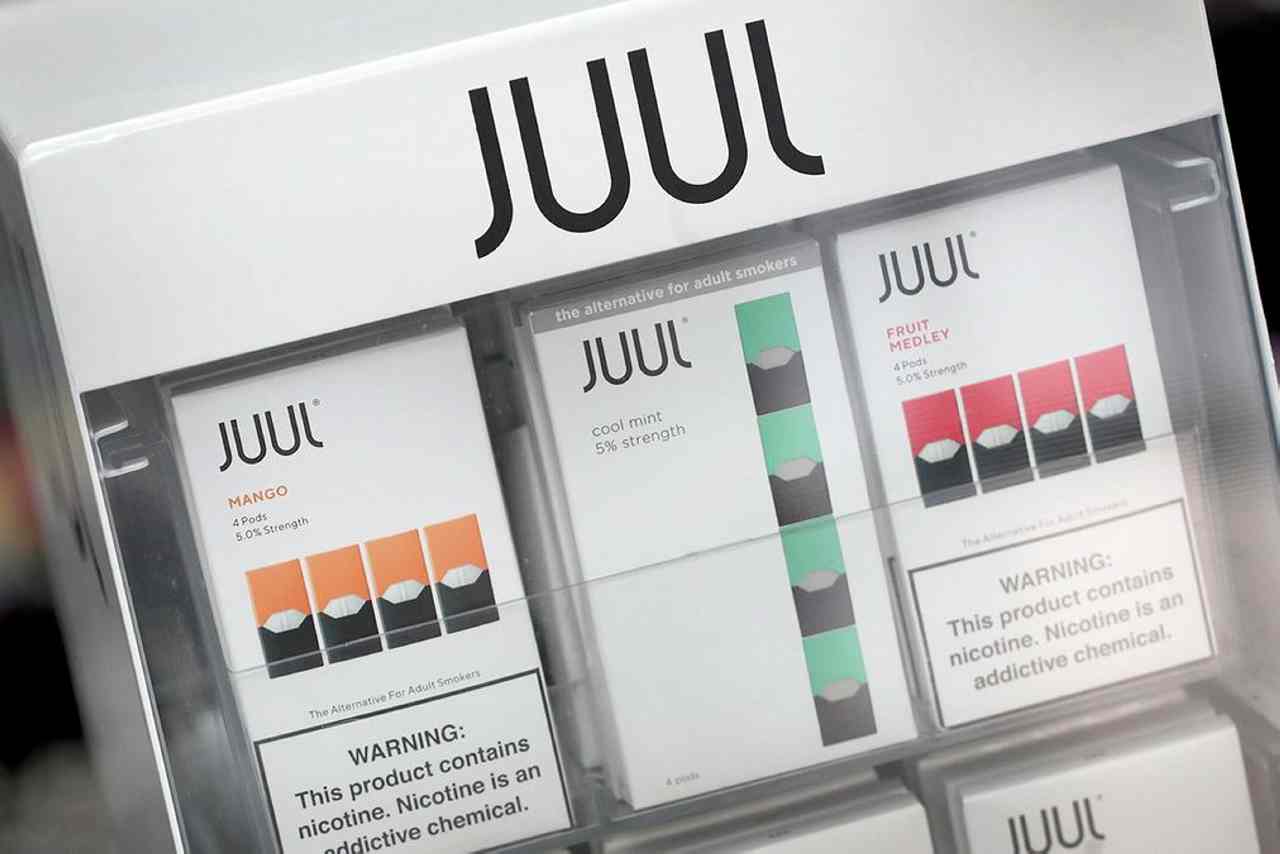In case you’re a toddler of the ’90s, absolutely you bear in mind Joe Camel. The slick, suave, animated character was anthropomorphized because the face of R.J. Reynolds Tobacco Firm’s Camel Cigarettes and that dude was in every single place. The controversial, kid-friendly tobacco pusher was seen enjoying pool in adverts on the again of magazines, and hanging on the seaside on mega-sized billboards.
However the one place Joe was nowhere to be discovered: tv. And that is as a result of in 1971, lawmakers banned cigarette adverts on TV and radio. Why then, almost 50 years after that rule was put into place, are e-cigarette manufacturers like Juul freely promoting their merchandise on the airwaves?
The reply: Federal and state rules simply have not caught as much as the brand new traits in tobacco consumption. Present FDA guidelines allow advertising and marketing of e-cigarettes in all sorts of media, together with tv, so long as they embody the warning message: "This product incorporates nicotine. Nicotine is an addictive chemical." And that is why, regardless of public stress to take away most of its candy-like flavors from shops, e-cig producer Juul has legally launched a $10 million tv advert marketing campaign.
Whether or not the adverts are authorized, although, relies on who you ask. In a paper for the College of California, San Francisco Heart for Tobacco Management Analysis and Training, director Stanton A. Glantz, Ph.D., wrote that Juul’s adverts "are making unlawful therapeutic (they might help customers stop smoking) and modified threat claims (they’re more healthy) with out the legally-required approvals from FDA."
Glantz instructed SFGate in Could that he thinks "Juul is skirting the sting of the regulation, and that the FDA is letting them get away with it." He says FDA enforcement of those sorts of smoking cessation claims is much more necessary since e-cigarettes aren’t at the moment topic to the legal guidelines that ban conventional tobacco promoting on TV.
How then, is Juul selling what seems to most as smoking cessation in its TV adverts? They do, in spite of everything, function former cigarette people who smoke who swear switching to Juul helped them break their smoking habits. The quick reply is that the regulation prohibiting broadcast promoting of cigarettes applies solely to cigarettes, not tobacco merchandise on the whole and Juul is technically not a cigarette. The Juul adverts additionally by no means use phrases related to FDA-approved smoking cessation merchandise, like "stop," or "habit." As a substitute, the advertising and marketing tagline is "Make the Swap." Firm executives additionally say the three adverts are airing solely on nationwide cable channels after 10 p.m. and are aimed toward adults 35 years and older.
Nonetheless, surveys performed by the Fact Initiative (a nonprofit well being group aimed toward ending tobacco use) present that almost all of first-time Juul customers have been youthful than 18 after they first tried it. Practically half of these stated they tried it as a result of their mates used it, although a whopping 25 p.c stated they tried it as a result of they thought it wasn’t as dangerous as different types of tobacco. Newsflash: It’s! The truth is, Juul has a number of the highest ranges of nicotine of any e-cigarettes in the marketplace.
Whether or not the Juul "Make the Swap" adverts break the regulation or not, one factor is for certain: Juul continues to interrupt information with its gross sales. The variety of younger adults between 18 and 21 years previous who tried Juul elevated greater than 400 p.c from July 2017 to October 2018. So whereas tobacco corporations like Juul can get away with TV promoting for now, they could encounter severe pushback sooner or later.
Now That is Attention-grabbing
The human mind develops till in regards to the age of 25 and analysis has proven nicotine — the addictive ingredient part in e-cigs and different tobacco merchandise — can hinder that growth, affecting the elements of the mind that management consideration, studying, temper and impulse management.







